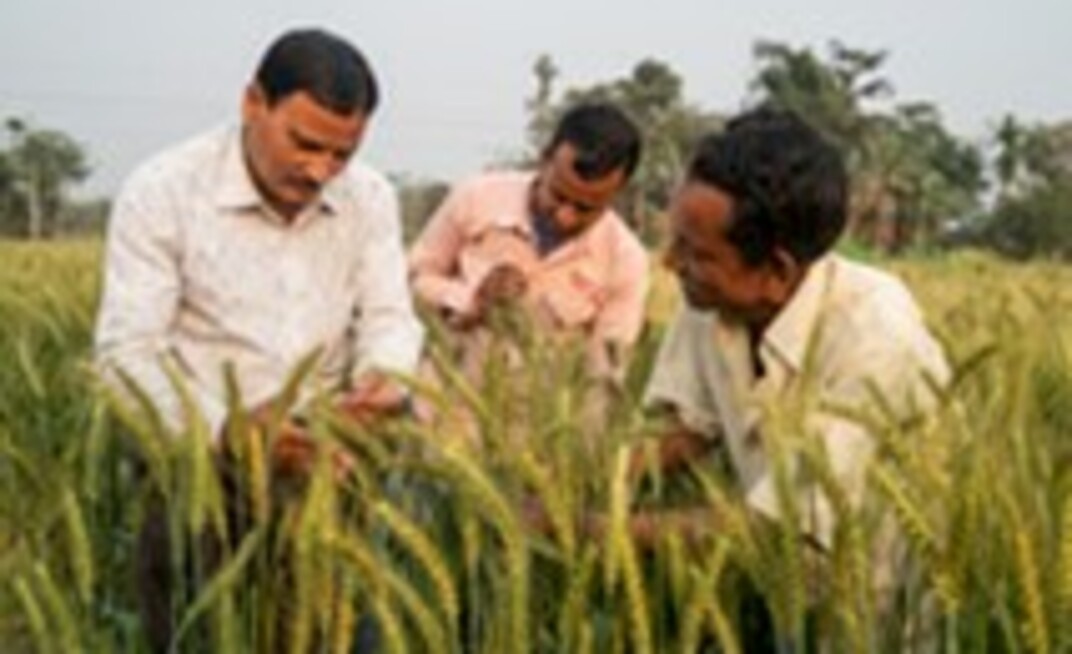African swine fever, fall armyworm, Panama disease, wheat blast. These are just a few of the biosecurity hazards prolific in our region which pose a severe risk to Australian agricultural industries.
The other commonality among these threats is that they are all being actively studied overseas by Australian scientists and researchers supported by the Australian Centre for International Agricultural Research (ACIAR).
ACIAR funds Australian researchers to work with partner countries throughout our region to improve food security and reduce poverty. When it comes to biosecurity, this gives Australian scientists the unique opportunity to study threats before they reach Australia, which can provide huge benefits to Australian agriculture.
ACIAR Chief Executive Officer, Professor Andrew Campbell, said biosecurity has always been a core element of the research agenda at ACIAR.
"Protecting plants and animals from disease is central to securing safe food and livelihoods for Australia and our neighbours," Professor Campbell said.
"The response to the arrival of wheat blast in our region provides a perfect example of how ACIAR-supported research can contribute to the protection of Australian rural industries and communities," he said.
Wheat blast
Wheat blast—caused by airborne spores or through contaminated seed—has been present in South America, where it has plagued wheat growers in Brazil, Argentina, Bolivia and Paraguay since the mid-1980s. It was then detected in Bangladesh in 2016 and Zambia in 2018, cementing its status as a global threat.
Following the detection of wheat blast in Bangladesh, an ACIAR-supported research project led by researchers at the International Maize and Wheat Improvement Center (CIMMYT) was launched to identify and understand the genetics of resistance and breed wheat blast-resistant varieties adapted to Bangladesh.
Nearly 10,000 wheat genotypes from CIMMYT, South Asia and China were evaluated across three field screening platforms for wheat blast over multiple cropping seasons during this project.
As a result of the data gathered, more than 100 crosses have been made, with resistant sources identified for direct release or resistance breeding in wheat blast-prone areas.
More than 10 new wheat varieties with better resistance to wheat blast have now been released in Bangladesh, renewing the confidence of millions of farmers in wheat cultivation. Farmers affected by wheat blast are again able to generate profits from wheat production, domestic production has increased, and importation of wheat has reduced.
A second phase of the project is continuing the search for new wheat blast-resistant genes. However, research and breeding work in South America has indicated that growing resistant varieties alone is not enough to manage this devastating disease.
Other management tools, including fungicide application and sowing date adjustment, must be incorporated into wheat blast management systems if growers are to control the impacts of the disease.
Professor Campbell said that the lessons learned from these projects have contributed to Australia's preparedness for a wheat blast incursion.
"Thanks to these ACIAR-supported researchers, led by CIMMYT's Dr Pawan Kumar Singh, our ability to screen and breed for resistance to wheat blast has dramatically improved.
"As researchers gather more data, we hope that further progress will be made in developing wheat blast-resistant genes and management systems suitable for Australian growers.
"Australia has extensive technical strengths in plant and animal biosecurity. It is enormously to our advantage to deploy this capability in the region to help our neighbours better understand and respond to the diseases and pathogens that threaten and constrain their farming systems and food security.
"In doing so, we also help to manage the risk to Australian farmers, primary industries and rural communities," Professor Campbell added.
The most effective biosecurity system is one that prevents or minimises incursions. The work that ACIAR does in collaborating with our neighbours on pre-border biosecurity partnerships ensures that Australian researchers can gain the knowledge to mitigate the threat of potentially devastating pests and diseases before they get to Australia, rather than waiting for them to arrive.
For more details visit: www.aciar.gov.au
ABOUT THIS COMPANY
Australian Centre for International Agricultural Research
HEAD OFFICE:
- 38 Thynne St, Bruce, ACT, 2617, AUstralia
- Phone: 262170500
- Website: https://www.aciar.gov.au/
























